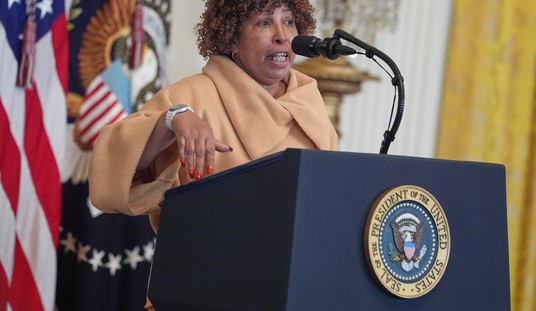Israeli Prime Minister Benjamin Netanyahu seems to have finally lost his grip on control of the Israeli government and will be replaced as Prime Minister by the leader of a coalition of Israeli political parties led by Yair Lapid, the head of the centrist Yesh Atid party.
I don’t pretend to be an expert on Israel’s complicated parliamentary government system, but as I understand what has happened, in elections held in March, Netanyahu secured the first opportunity to form a new coalition government when his Likud party won the largest number of seats in the 120 member Knesset, but not an outright majority. It takes the vote of 61 seats to form a new government, and under Israeli law, Netanyahu had a prescribed period of time in which to do so, but he was unsuccessful. That opened the door to Lapid’s efforts with his Yesh Atid party having secured the second-highest number of seats in the Knesset, and he had until midnight on Wednesday to accomplish that task. It is being reported that approximately 30 minutes before the midnight deadline, Lapid informed the President of Israel that he had reached an agreement with the leaders of seven other parties, and altogether they controlled the minimum number of 61 seats needed to form a coalition government to take the place of Netanyahu’s coalition.
The new governing coalition consists of eight parties that stretch across the spectrum of Israeli politics, signaling that the agreement is less about Israeli government policies and more about an agreement among the group that Netanyahu’s time in office needed to come to an end. Among the parties that joined the coalition to oust Netanyahu was the right-wing Orthodox Yamina party, the primary conservative challenger to Netanyahu’s ruling Likud party. Part of the agreement struck between Lapid and Naftali Bennett, leader of the Yamina party, is that Bennett will serve as the next Prime Minister, and after two years Lapid will take over as Prime Minister.
But the most significant development is that the coalition includes an Aral-Israeli party — the Raam party, which is Islamist. Including the Raam party gave Lapid the 61 votes he needed to bring an end to the Netanyahu government. That Raam would join in a coalition with a right-wing orthodox party where there is almost no agreement on issues is all the evidence needed to show the new coalition’s main purpose was to get Netanyahu out as Prime Minister.
Netanyahu has been engaged in a long-running battle internally over charges of corruption, and a trial charging him with various acts of corruption is underway in the Israeli courts now. When Likud was unable to organize a new governing coalition back in March, it gave Netanyahu’s political opponents a chance to organize a government to take over and put him out of office. Reports that Lapid was close to doing so have been circulating in the media for weeks, but the outbreak of fighting between Israel and Hamas in Gaza disrupted the efforts as Netanyahu directed the Israeli Defense Forces in the overwhelming response with the full support of most of his domestic political opponents.
It certainly did not help Netanyahu when the Biden Administration came into office and there appeared to be an obvious cooling in the relationship compared to the Trump Administration. Nor did it help that the Biden Administration set off immediately in pursuit of resurrecting the Iran nuclear deal which Netanyahu opposes.
But this change in government has been a long-time coming. Israel has held four elections since 2019, but Netanyahu was unable to assemble a governing coalition each time. The pandemic brought a brief period of agreement among the various political rivals but it was short-lived.
The key to the new coalition is Yamina party leader Bennett, without whom Lapid could not have reached 61 votes. The price Lapid paid to get Bennett’s participation was to make Bennett Prime Minister for two years ahead of Lapid even though Bennett’s conservative Orthodox Yamina party is in many ways further to the right than Netanyahu’s Likud party.
Bennett represents a conservative and generational rival to Netanyahu on the right. Netanyahu has served for nearly 12 years as Prime Minister, but more significantly, he has never faced a political challenge on his right. Three of the eight coalition parties support Netanyahu’s government on almost all policy positions, but they are putting Bennett forward as a leader of conservatives to replace Netanyahu who refuses to leave the stage voluntarily.
Bennett represents much more of a change at the top from Netanyahu than just generational, however.
Bennett will be the first overtly non-secular leader of the Jewish state and reflects the increased influence of religious Zionism inside Israel, a state founded by secular Jewish socialists. He opposes the creation of any form of a Palestinian state, favors expansion of settlements on the West Bank of the Jordan River, and is just as hawkish on defense policy as is Netanyahu. His parents are both American, and he has spent time as an adult living in New York.
There are predictions in the press that the new governing coalition will be short-lived. With only 61 votes in the Knesset, passing any legislation will be difficult given such diverse political views within the coalition partners. More importantly, the primary motivation for creating the coalition will be accomplished on its first day — the ouster of Netanyahu from the office of Prime Minister. While Bennett is outspoken and seeks to be recognized as a leader of the conservative wing of Israeli politics, his secular Zionist Yamina party has only six seats in the Knesset. There is little to keep him in that position if the coalition falls apart soon after he takes over.
Likud party members hold 30 seats in the Knesset so whoever steps forward to take Netanyahu’s place as party leader almost immediately becomes favored to be Prime Minister if the new coalition government falters. Netanyahu will almost certainly remain a force behind the scenes, but it appears that the era of Benjamin Netanyahu being the face of Israel around the world is coming to an end.














Join the conversation as a VIP Member